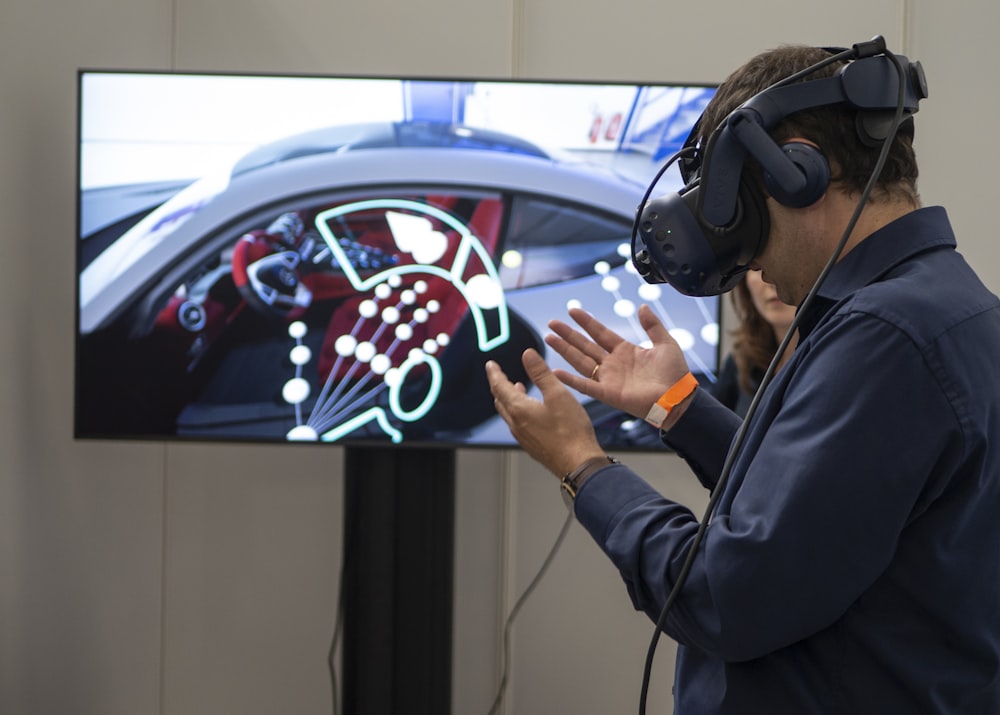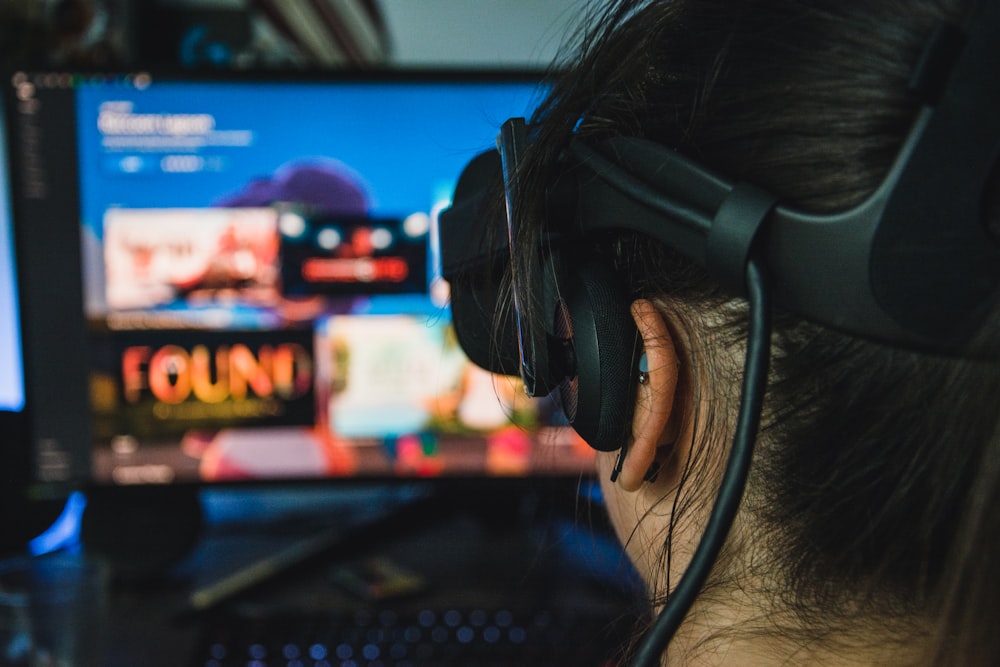The concept of the metaverse has been around for a long time, but it has become more popular recently due to advancements in technology. The metaverse is essentially a virtual world that is connected to the physical world through the internet. Metaverse app development involves the creation of applications that can be used within this virtual world, providing users with a completely new way to interact with technology. In this blog, we will explore what the metaverse is, how it works, and the potential benefits of developing apps for it.
What is the Metaverse?
The term “metaverse” was first coined by science fiction author Neal Stephenson in his 1992 novel “Snow Crash.” In the book, the metaverse was a virtual reality space where people could interact with each other and with digital objects. In the years since the book was published, the idea of the metaverse has evolved and become more complex.
The metaverse can be described as a collective virtual shared space that is created by the convergence of digital technology, augmented reality, and virtual reality. It is a three-dimensional digital space that allows people to interact with each other and with digital objects in real-time. Users can enter the metaverse through a variety of devices, including virtual reality headsets, smartphones, and computers.
The metaverse is not a single platform or technology. Rather, it is a collection of interconnected virtual worlds, each with its own rules and mechanics. Some of the most popular metaverse platforms include Second Life, Minecraft, and Roblox.
How does the Metaverse Work?
The metaverse is powered by a variety of technologies, including blockchain, virtual reality, and augmented reality. These technologies work together to create a seamless virtual world that users can interact with in real-time.
One of the key components of the metaverse is blockchain technology. Blockchain allows for the creation of decentralized applications, or dApps, which can be used within the metaverse. These dApps are built on top of blockchain technology and can be used to create virtual currencies, digital assets, and other types of digital content.
Virtual reality and augmented reality technologies are also important components of the metaverse. These technologies allow users to experience the virtual world in a more immersive way. Virtual reality headsets, for example, can be used to create a completely immersive virtual environment, while augmented reality can be used to overlay digital content onto the physical world.
Benefits of Metaverse App Development
There are many potential benefits to developing apps for the metaverse. Some of these benefits include:
New Revenue Streams: Metaverse app development provides companies with a new way to generate revenue. Companies can create digital assets, virtual goods, and other types of content that can be sold within the metaverse.
Increased Engagement: The metaverse provides users with a more immersive and engaging experience than traditional apps. This can lead to increased user engagement and loyalty.
New Markets: The metaverse is still in its early stages, but it has the potential to become a massive market in the future. Companies that get in on the ground floor of metaverse app development may be able to tap into this new market before it becomes oversaturated.
Brand Awareness: Developing apps for the metaverse can help companies increase brand awareness and visibility. This can be especially beneficial for companies that are trying to reach younger, tech-savvy audiences.
Challenges of Metaverse App Development
Metaverse development is an exciting and rapidly evolving field. As more companies enter the space, there are a number of challenges that developers face. In this section, we'll explore some of the most common challenges of metaverse app development.
Hardware Limitations: One of the biggest challenges of metaverse app development is the hardware limitations. Metaverse apps require high-quality graphics, complex interactions, and high processing power. This can be challenging for older devices, which may not have the required hardware specs to run these apps. This can limit the potential user base of the app.
Interoperability: Another major challenge of metaverse app development is interoperability. Metaverse apps need to be able to work with a wide range of devices, operating systems, and platforms. This requires developers to design apps that can work across multiple devices and platforms. This can be challenging, as different devices and platforms have different capabilities and limitations.
Security: Security is another major challenge of metaverse app development. Metaverse apps need to be secure, as users will be sharing personal information and interacting with others in virtual spaces. Developers need to ensure that user data is protected and that the app is not vulnerable to hacking or other security threats.
Content Creation: Content creation is another challenge of metaverse app development. Metaverse apps rely on user-generated content, which can be difficult to moderate and manage. Developers need to create tools that allow users to create content in a safe and secure environment, while also ensuring that inappropriate or offensive content is not allowed.
Monetization: Finally, monetization is a challenge of metaverse app development. Developers need to find ways to monetize their apps, while also providing value to users. This can be challenging, as users may not be willing to pay for virtual goods or services. Developers need to find creative ways to monetize their apps, such as through advertising, in-app purchases, or subscription models.
Overall, metaverse app development is a complex and challenging field. Developers need to be able to overcome these challenges in order to create successful metaverse apps. By understanding the challenges and developing strategies to overcome them, developers can create apps that provide value to users and help shape the future of the metaverse.
Future of Metaverse App Development
Metaverse app development is still in its early stages, and while there are numerous challenges to overcome, the future of this technology is incredibly promising. Here are some potential directions that metaverse app development could take in the years to come.
- Increased Immersion
As the technology used to develop metaverse apps improves, so too will the level of immersion offered to users. As we've already seen with VR and AR technology, users are able to feel as though they are truly present in another world, and metaverse apps will only take this further. This could include the use of haptic feedback, allowing users to feel objects in the virtual world as though they were real, or even the use of direct neural interfaces, allowing users to control their avatars with their thoughts.
- Greater Customization
Metaverse apps will likely become even more customizable in the future, allowing users to create their own avatars and environments to a greater degree. This could include the ability to upload custom assets, such as 3D models, textures, and animations, as well as the ability to program custom behaviors and interactions.
- More Collaborative
As metaverse technology becomes more advanced, it will become easier for multiple users to interact with each other in real-time within the same virtual space. This could lead to the development of large-scale collaborative projects, such as virtual art galleries or virtual conferences, where users from all over the world can participate in the same event.
- Integration with Real-World Data
Metaverse apps could potentially be integrated with real-world data to create an even more immersive experience. For example, a metaverse app could use real-world weather data to simulate a virtual storm, or use GPS data to map the virtual environment to the real world.
- New Applications
As the technology behind metaverse app development continues to improve, new applications for this technology are likely to emerge. For example, metaverse apps could be used for virtual education, allowing students to attend classes and interact with teachers and peers from anywhere in the world. They could also be used for virtual tourism, allowing users to explore virtual versions of real-world locations.
- Increased Accessibility
As the cost of hardware continues to decrease and technology becomes more widely available, metaverse apps will become more accessible to people around the world. This could lead to the development of new applications for metaverse technology, as more people are able to experience it firsthand.
Conclusion
Metaverse app development is an exciting field with numerous potential applications. While there are still challenges to overcome, the future of this technology is incredibly promising. As the technology continues to improve, we can expect to see increased immersion, greater customization, more collaborative projects, integration with real-world data, and the emergence of new applications. Ultimately, metaverse technology has the potential to revolutionize the way we interact with the world around us, and we are only beginning to scratch the surface of what is possible.
CronJ is a leading Metaverse app development company, offering innovative solutions to help clients take advantage of the potential of this exciting new technology. With our team of experienced developers and designers, we can create custom Metaverse apps tailored to your specific needs. Contact us today to learn more about how we can help you harness the power of the Metaverse.





